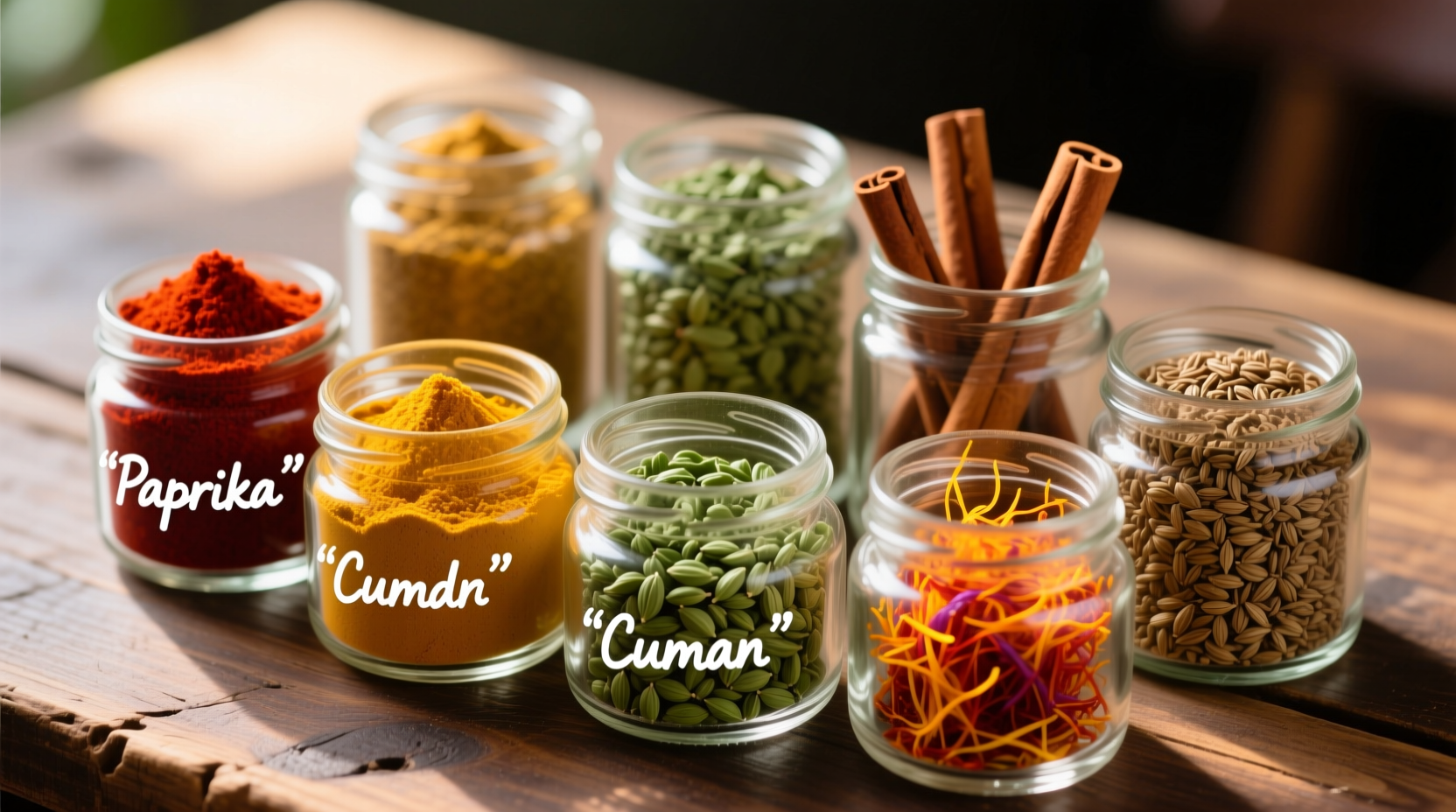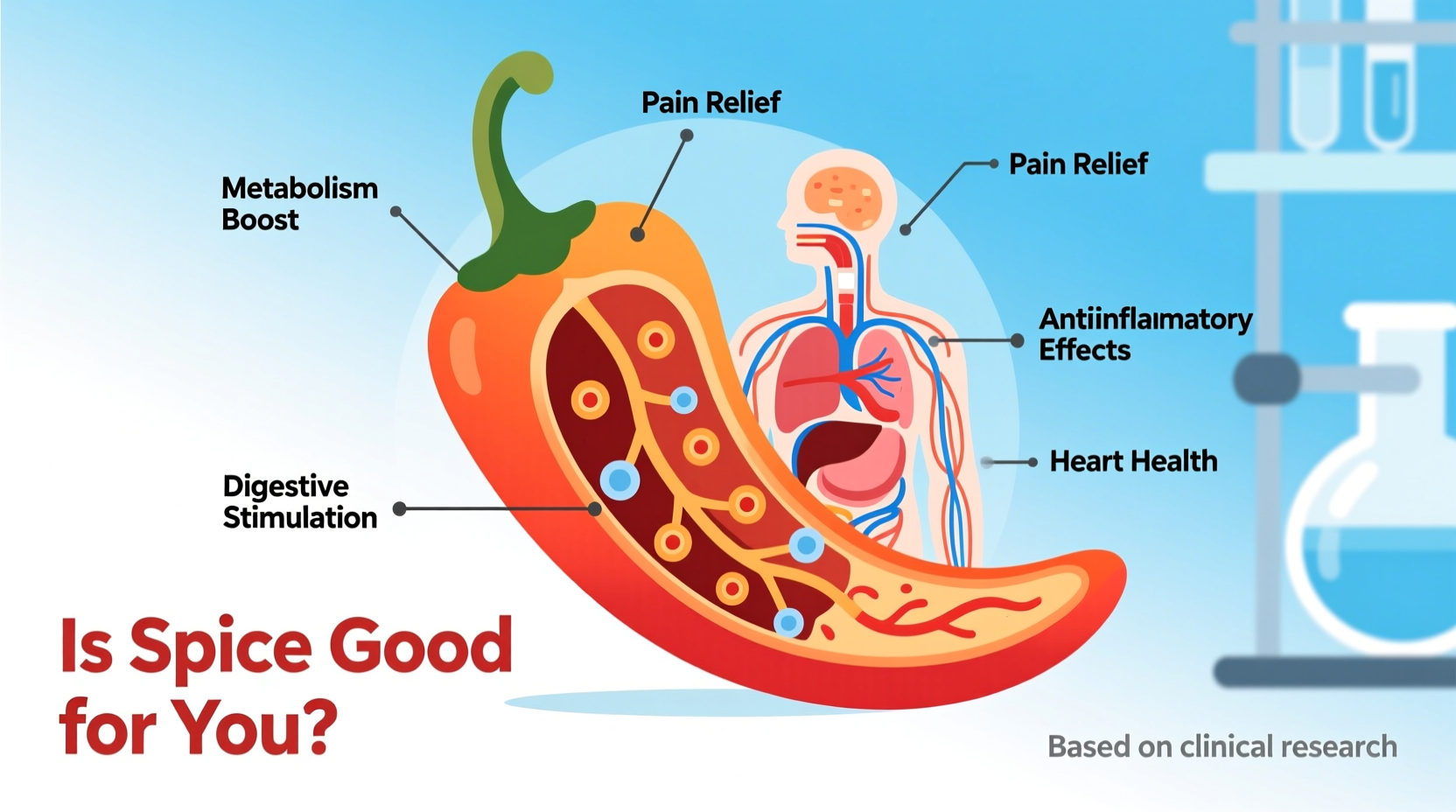Yes, most spices are beneficial for health when consumed in culinary amounts, offering anti-inflammatory properties, antioxidants, and potential protection against chronic diseases. However, excessive consumption or specific medical conditions may create risks that require consideration.
When you sprinkle turmeric on roasted vegetables or add cinnamon to your morning oatmeal, you're not just enhancing flavor—you're potentially boosting your health. Scientific research increasingly confirms what traditional medicine systems have known for centuries: spices offer remarkable health benefits when used appropriately in daily cooking.
The Science Behind Spice Benefits
Spices contain bioactive compounds that interact with our body's systems in beneficial ways. Curcumin in turmeric, piperine in black pepper, and allicin in garlic demonstrate particularly strong research backing. According to the National Institutes of Health, these compounds can modulate inflammation pathways, improve metabolic function, and provide antioxidant protection that combats cellular damage.
| Common Spice | Key Bioactive Compound | Primary Health Benefits | Recommended Daily Amount |
|---|---|---|---|
| Turmeric | Curcumin | Anti-inflammatory, joint health support | 1/2-1 tsp (with black pepper for absorption) |
| Cinnamon | Cinnamaldehyde | Blood sugar regulation, antioxidant | 1/4-1/2 tsp |
| Ginger | Gingerol | Digestive support, nausea relief | 1/4-1/2 tsp fresh or powdered |
| Garlic | Allicin | Cardiovascular support, immune function | 1-2 cloves |
How Spice Benefits Have Evolved Scientifically
Our understanding of spice health properties has transformed dramatically over time:
- Ancient Era: Traditional medicine systems like Ayurveda and Traditional Chinese Medicine incorporated spices based on observational evidence
- 19th Century: Isolation of first active compounds (like capsaicin from chili peppers)
- Late 20th Century: Development of analytical techniques to study spice compounds' mechanisms
- Present Day: Clinical trials confirming specific health benefits and optimal consumption patterns
This evolution from anecdotal evidence to scientific validation explains why modern nutrition science increasingly recommends culinary spice use as part of a healthy diet pattern.
Practical Health Benefits You Can Experience
Research from the American Heart Association demonstrates that regular spice consumption correlates with measurable health improvements:
- Cardiovascular protection: Spices like garlic and turmeric may help reduce blood pressure and improve cholesterol profiles
- Anti-inflammatory effects: Chronic inflammation reduction potentially lowering risk of conditions like arthritis
- Metabolic support: Cinnamon shows promise in improving insulin sensitivity according to clinical studies
- Antioxidant boost: Many spices rank exceptionally high on the ORAC (Oxygen Radical Absorbance Capacity) scale
These benefits make spices valuable tools for those seeking natural approaches to wellness through dietary choices.

Important Considerations and Limitations
While spices offer numerous benefits, certain context boundaries affect their safety and efficacy:
- Medication interactions: Turmeric may interact with blood thinners, and ginger can affect diabetes medications
- Quality matters: Adulterated or improperly stored spices lose potency and may contain contaminants
- Therapeutic vs. culinary doses: Health benefits typically apply to culinary amounts, not supplement-level doses
- Individual variations: Some people may experience digestive discomfort with certain spices
The U.S. Food and Drug Administration emphasizes that spices should be consumed as food ingredients rather than therapeutic agents without medical supervision.
Smart Ways to Incorporate Spices Into Your Diet
You don't need complicated regimens to benefit from spices. Simple, practical approaches work best:
- Replace salt with spice blends to reduce sodium intake while enhancing flavor
- Combine turmeric with black pepper and healthy fats to increase curcumin absorption
- Add cinnamon to breakfast foods rather than sugary toppings
- Use fresh ginger in teas or stir-fries for digestive support
- Create homemade spice rubs for proteins instead of processed seasoning mixes
These small changes accumulate significant health benefits over time without requiring major dietary overhauls.
Finding Quality Spices
Not all spices deliver equal benefits. Consider these quality indicators:
- Look for spices with vibrant color and strong aroma
- Purchase from reputable sources that disclose origin and harvest dates
- Store spices in airtight containers away from light and heat
- Grind whole spices yourself when possible for maximum potency
Research from the USDA shows that properly stored spices maintain their beneficial compounds significantly longer than those exposed to environmental degradation.
Conclusion: Spices as Part of Balanced Wellness
Spices represent one component of a health-promoting diet rather than magic bullets. Their benefits emerge most clearly when incorporated consistently as part of an overall nutritious eating pattern. By understanding both the science-backed benefits and practical limitations, you can make informed choices about using spices to support your wellness journey.
Can spices help with weight loss?
Some spices like cayenne pepper and ginger may modestly boost metabolism and reduce appetite, but they're not weight loss solutions on their own. Research shows these effects are mild and work best when spices replace less healthy ingredients in an overall balanced diet.
Are there risks to consuming too many spices?
Yes, excessive consumption can cause digestive issues, interact with medications, or trigger allergic reactions. For example, very high turmeric intake may cause gastrointestinal discomfort, and cinnamon in large amounts contains coumarin which can affect liver function in sensitive individuals.
Which spices have the highest antioxidant content?
According to USDA measurements, cloves, cinnamon, oregano, and turmeric rank among the highest in antioxidant capacity. However, the actual benefit depends on how much you typically consume—small amounts of high-antioxidant spices still provide less total antioxidants than larger servings of fruits and vegetables.
How can I maximize the health benefits of spices?
Combine spices with complementary ingredients (like turmeric with black pepper and healthy fats), use fresh spices when possible, store them properly to maintain potency, and incorporate them consistently into varied dishes rather than relying on single spices excessively.
Do processed spice blends offer the same benefits as individual spices?
Many commercial blends contain added salt, sugar, or anti-caking agents that diminish health benefits. Homemade blends using pure spices without additives provide the most nutritional value while allowing you to control ingredient quality and proportions.











 浙公网安备
33010002000092号
浙公网安备
33010002000092号 浙B2-20120091-4
浙B2-20120091-4